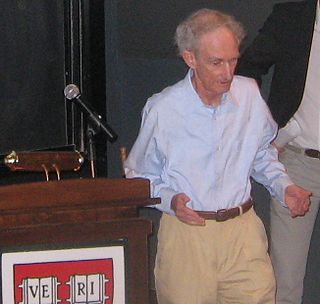A Quote by John Sulston
The fact is that proprietary databases don't work for such basic and broadly needed information as the sequence of the human genome.
Quote Topics
Related Quotes
The question is, are there useful things that we can do with the results of a genome sequence that would bring benefit? And the answer is, today, should the majority of people go and have their genome sequenced? Probably not. But are there particular circumstances in which genome sequencing is really helpful? Yes, there are.
As a Christian, but also as a scientist responsible for overseeing the Human Genome Project, one of my concerns has been the limits on applications of our understanding of the genome. Should there be limits? I think there should. I think the public has expressed their concern about ways this information might be misused.
Consider: The human genome consists of about 3.3 billion base pairs. Since there are only four types of pair, that amounts to 0.8 gigabytes of information, or about what you can fit on a CD. With a microwave radio transmitter, you could beam that amount of information into space in a few minutes, and have it travel to anyone at light speed.



































